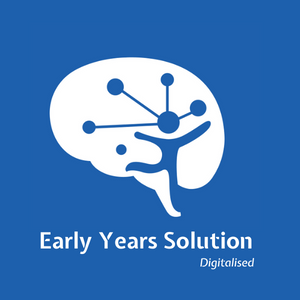There are no items in your cart
Add More
Add More
| Item Details | Price | ||
|---|---|---|---|
Method:
A focus group with five parents of children with Neurodisability from Cornwall, in August 2021 was conducted. They were demonstrated the digital solution Early Years Solutions has developed.
Consent:
Consent and confidentiality form were received from all five parents, before the conduction of the focus group.
Findings:
Parents agreed that there is a lack of support and expressed their enthusiasm for a digital solution for this that was demonstrated to them.
Views from Parents' focus group in Cornwall, UK
Autism Spectrum Disorder in the COVID 19 Era: New Challenges - New Solutions
Method: Parents of 45 children with a confirmed diagnosis of ASD - 15 from Cornwall, United Kingdom [mean (range) age, 11.06 (7.02-17.05) years] and 30 from Lucknow, India [mean (range) age, 5.2 (2.11- 8.07) years] participated in the survey. A semi-structured survey was constructed. It included four variables: change in behaviour (CIB), change in the routine (CIR), regression in skills (RIS), and parental stress (PS).
Consent: Consent was obtained, and General Data Protection Regulation guidelines were followed during data collection and analysis.
Evidence for Early Intervention
What is Early Intervention?
Purpose of Early Intervention?
The early intervention’s primary purpose has been to help acquire and generalise critical developmental skills to the possible extent and achieve independent functioning across environments. The time period from birth up to six years is considered the most crucial for brain development, and intervening during this will help children reach their learning and developmental goals. (3)
Benefits of Early Intervention:
Direct benefits of EI include improvement in outcomes like physical, cognitive, behavioural, and social and emotional development, parent efficiency, mental health, and understanding of their child. (4) Other reported benefits included increment in verbal and non-verbal abilities of children with ASD, along with improved parents and caregivers’ efficacy and understanding of their child’s needs. (5,6)
Digitally Delivered Early Intervention in India: what have we achieved?
Introduction
When early intervention is provided to children with neurodisability parents expect an improvement in their developmental/ early years foundation skills (EYFS), self-help skills, and behaviour.
Aim
In our early intervention program (EIP) we focus on empowering parents with simple tailored and relevant information delivered on their phone app- DHRUV. Our study investigates children's improvement in the above area by addressing parental knowledge, home environment, and parental stress.
Method:
Intervention based on assessment cycle (I-BAC) was developed to profile children based on their EYFS, behaviour, and self-help skills. This automatically generates relevant video information on the parent’s app and enrols the child in an EIP. 42 children and their parents were enrolled for digitally delivered early intervention. These children were grouped automatically based on their recommended videos and delivered early intervention, in a school-based environment.
Results:
Descriptive analysis showed that 57.58% of children with autism, 50% of children with Cerebral Palsy, 100% with dyslexia, 80% with global delay, and 100% with Intellectual disability showed improvement in EYFS, self-help skills, and behaviour. The duration of early intervention ranged from 9 weeks up to 129 weeks.
Findings:
Digitally delivered early intervention increased compliance (73.41% of patients coming for one year or more), and EYFS. This model provides a low-cost, high efficacy digital platform to address parental anxiety and improve children’s EYFS. Limitation: long-term efficacy of the program needs evaluating and further longitudinal comparison studies are in progress.
Limitation:
Paediatricians need to take the Lead says new review.
mHealth Apps Delivering Early Intervention to Support Parents of Children With Autism Spectrum Disorder: A Scoping Review
Early intervention is the key to improved outcome in children with Autism and their families. There is a huge surge in mhealth based support and therapies. In a recent scoping review, researchers found that although their is surge of such apps, but they lack effectiveness and clinical efficacy .
The provision of support to parents using apps was equally beneficial as in-person support, reduced costs, and improved outcomes in children.
The review revealed limited evidence-based mHealth apps available currently in a community setting. Also underscores an opportunity
for clinicians to re-direct parents towards evidence-based information and interventions.
An Evidence-Based digitalised and simplified solution, which runs on a smart algorithm, to empower parents, schools and adapt to the child's developmental level and need.
Information to parents is delivered as a video on the parent's app to be viewed 'anytime' by them. Due to profiling, the information is developed to be 'relevant,' 'simple to use,' and 'effective in addressing parents' day-to-day problems'. It also provides games in line with children's EYFS scores to improve their interaction and child's EYFS skills. This can be used 'everywhere' by the parents and school.
Early Help available to the families delivered by schools will address parents' frustration about long waiting and lack of relevant information to help their child.
Improved Quality of Life:
Addressing day-to-day problems with relevant information improves the quality of life for the child and family.
Potential cost savings:
Early intervention will address children's foundation skills and behavior.

EADIE TRIAL
Early intervention delivered by digitally empowered schools- A real-world impact evaluation
Technology Overview
For schools/preschools that wish to deliver Early intervention in children with developmental delay, this software and app provide a platform to document a child’s developmental progress. This produces a profile report. This provides videos for a home intervention program to parents. The parents and school get a single platform to engage and understand a child’s problems, and both school and parents will get to plan activities to interact with, as well manage the child’s behaviour effectively.